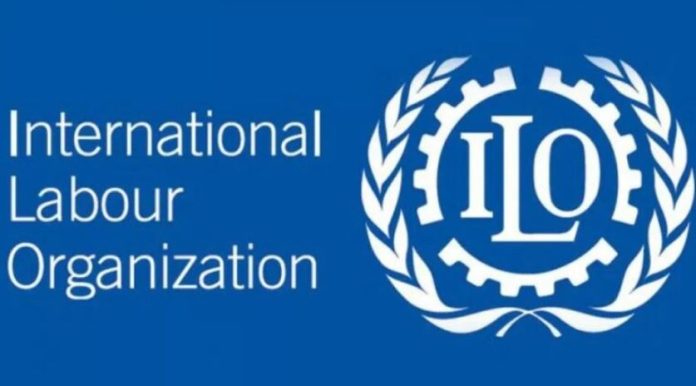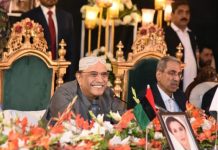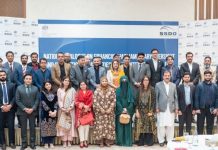LAHORE, JUN 12 (DNA): Speakers at a two-day training workshop here on Wednesday disclosed that forced labour, a crime under Pakistani law and a grave violation of human rights according to the International Labour Organisation (ILO), continued to plague approximately 3.4 million individuals in Pakistan, making more than 10 per cent of the global total of 28 million victims.
Particularly concerning is the vulnerability of migrant workers, who are three times more likely to fall into forced labour compared to non-migrants, added the speakers.
The event, organised by the ILO, in collaboration with the US Department of Labour (USDOL), at a local hotel under the auspices of the BRIDGE project—an initiative aimed at eradicating forced labour and promoting equitable labour practices—focused on equipping journalists with the requisite knowledge and skills to effectively report on forced labour and fair recruitment issues.
According to experts, with over 6.5 million Pakistanis seeking employment abroad through legal channels in the last decade, predominantly in Gulf Cooperation Council countries such as Saudi Arabia and the United Arab Emirates, the issue demands urgent attention.
A diverse cohort of 35 journalists representing various media platforms—print, electronic, radio, and digital—participated in the workshop.
Dr. Faisal Iqbal, the national project coordinator at ILO, emphasised the pivotal role of media in raising public awareness regarding forced labour and advocating for fair recruitment practices. “Media can be key influencers in shaping public perceptions about forced labour and labour migration,” Dr. Iqbal remarked, expressing concern over the prevalence of forced labour in Pakistan affecting an estimated 3.4 million individuals.
Dr. Iqbal further elucidated the objectives and significance of “The Bridge Project,” emphasising the importance of accurate reporting on forced labour and fair recruitment. He delineated the 11 indicators recognised by the ILO globally to identify forced labour, including abuse of authority, deception, movement restrictions, isolation, physical and sexual violence, wage retention, debt bondage, abusive working and living conditions, and excessive overtime.
Renowned journalists Aoun Sahi and Sabook Syed led comprehensive training sessions during the workshop, delving into various aspects of forced labour and labour migration. Sahi underscored the role of media in story identification, pitching, data collection, and effective storytelling across different platforms. Emphasising the importance of a rights-based and gender-sensitive approach, Sahi highlighted the significance of humanising the narratives surrounding forced labour and fair recruitment, while adhering to ethical considerations, particularly when interviewing survivors.
Insights from an ILO report titled “Profits and Poverty: The Economics of Forced Labour,” issued in March 2024, were also shared during the workshop. The report revealed staggering figures, indicating annual costs and profits of forced labour globally amounting to $236 billion. With 3.5 out of every thousand individuals worldwide involved in forced labour, industries, services, and agriculture emerged as the top three sectors affected.
The workshop culminated with participants demonstrating keen interest and active engagement in discussions, group work, and practical exercises, reflecting a collective commitment to combat and cover forced labour and promoting fair recruitment practices in Pakistan.

















